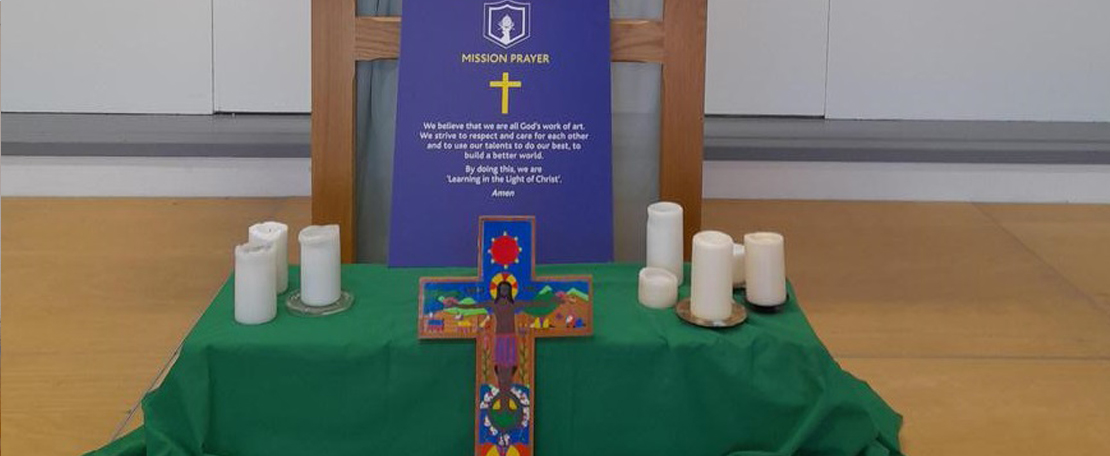Catholic Life & Mission
Religious Education is at the heart of our school. We follow a religious education programme which aims to strengthen our Catholic faith.
The primary purpose of Catholic Education is the step by step study of the mystery of Christ, the teaching of the Church and its application in daily life, therefore the principle aims of the school in terms of the Religious Education which it provides are:
- to lead the children to a deepening knowledge and understanding of our Catholic Faith.
- to provide opportunities for the children to develop a loving relationship with God and their neighbours.
- to encourage children to respect and be fully aware of the needs of others as equal members of God’s creation.
There are many opportunities for all children to explore their faith and deepen their relationship with Christ including daily acts of worship, weekly assemblies, regular liturgies and celebration of Mass.
Our 2015 Diocesan Inspection Report stated:
“Catholic faith is at the centre of the whole school curriculum overview and strong emphasis is placed on developing pupils’ experiences of sacramental celebrations. The richness and depth of the Catholic faith and way of life is presented through the teachings and traditions of the Church in a way which engages and inspires pupils”
Other Faiths
As part of our Religious Education programme the children are taught about other faiths, in particular Judaism and Islam.
The teaching about other religions is important because:
- Learning about other religions and cultures is one of the ways in which we fulfil our call to love our neighbour. As the Church says, “The love for all men and women is necessarily also a love for their culture. Catholic schools are, by their very vocation, intercultural.” (Congregation for Catholic Education p61).
- The Church states that schools “try to understand better the religion of one’s neighbours, and to experience something of their religious life and culture.” (Catholic Bishops’ Conference p3).
- The Church suggests that schools “find ways in which pupils can learn to engage in dialogue and to develop an attitude of respect for religious diversity. This will necessitate the inclusion of a broader study of both Christianity and of other world faiths in the Religious Education syllabus.” (Bishop’s Conference of England and Wales, 1997)
- It prepares our children for life in modern Britain, giving them an understanding of the beliefs of others.



